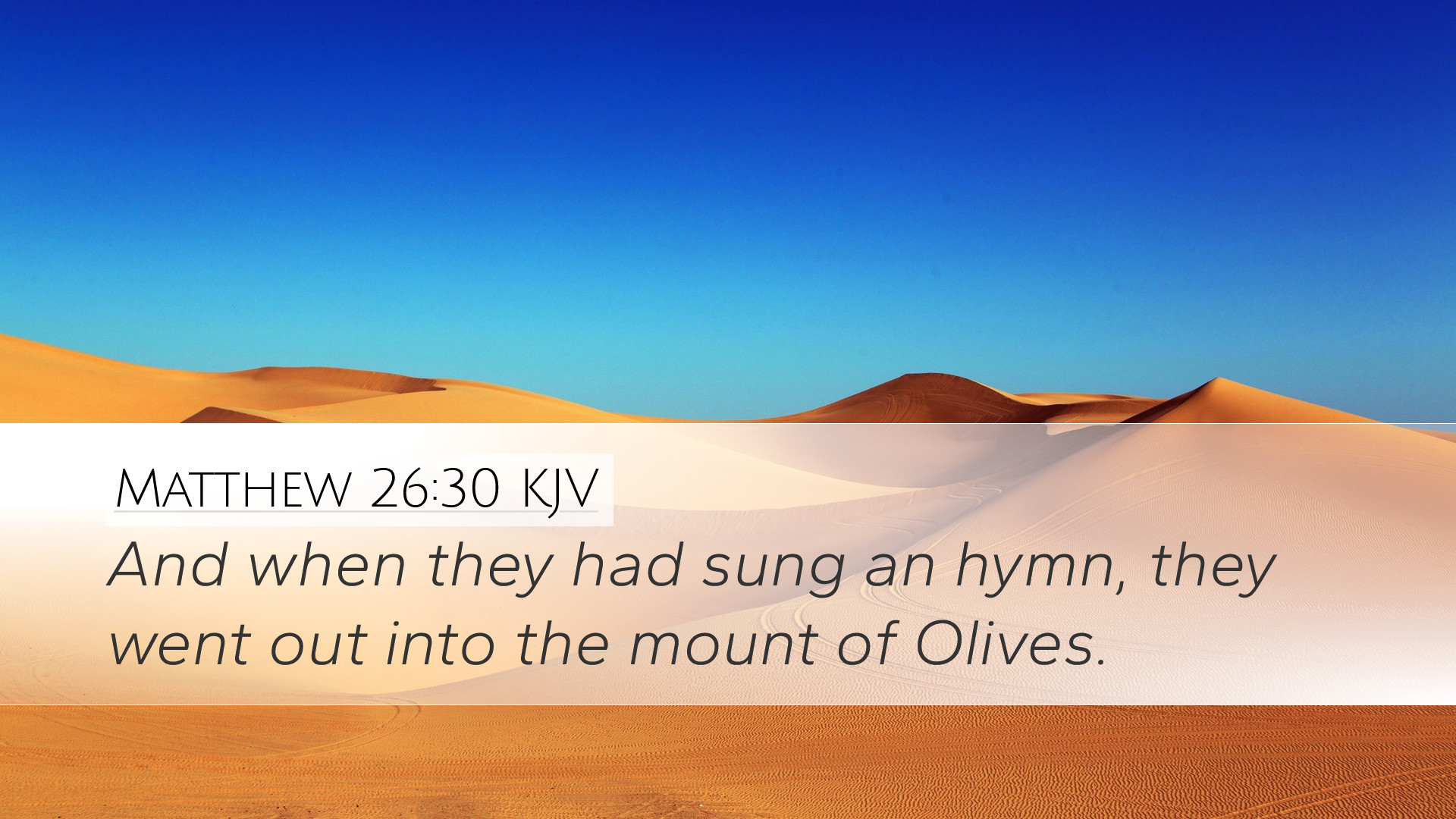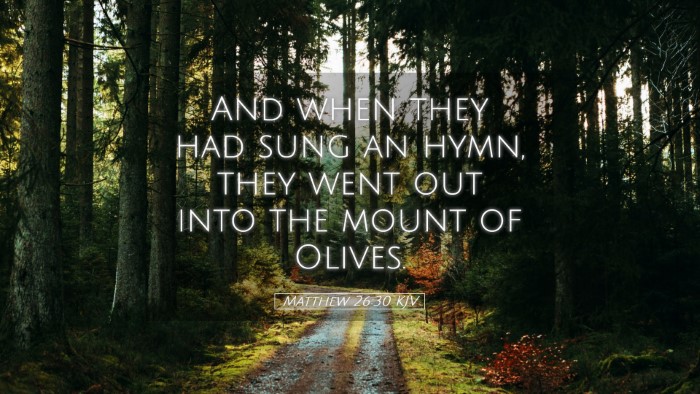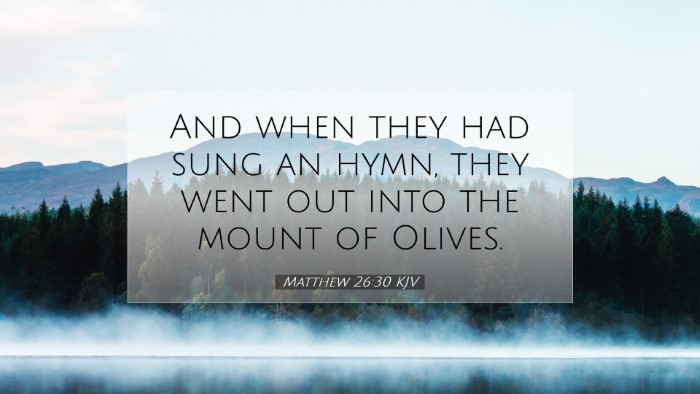Commentary on Matthew 26:30
Matthew 26:30 states, "And when they had sung a hymn, they went out to the Mount of Olives." This verse follows the account of the Last Supper, marking the culmination of the Passover meal celebrated by Jesus and His disciples. The implications of this verse are profound and multifaceted, serving both as a transition in the narrative and as an expression of the deep spiritual truths involved in this significant moment.
Contextual Significance
This moment occurs just after Jesus has instituted the Lord's Supper, which is rich with meaning regarding His impending crucifixion and the establishment of a new covenant. The act of singing a hymn is not merely a cultural or ceremonial act but a reflection of the joy and unity among the disciples in the face of the somber reality of Jesus’ sacrifice.
Matthew Henry's Commentary
Matthew Henry notes the significance of worship even in times of impending sorrow. He posits that the act of singing can be viewed as an expression of faith. The hymn likely came from the Hallel (Psalms 113-118), which was traditionally sung during Passover. Henry emphasizes that joy and sorrow can coexist, a theme visible throughout scripture where worship acts as a response to God that transcends the circumstances at hand.
Albert Barnes’ Notes on the Bible
Barnes points out that this act of singing indicates the disciples’ obedience and reverence. They express their thankfulness and recognition of the significance of their gathering with Jesus even as they approach the hour of trial. His commentary highlights the communal aspect of faith, as they collectively engage in worship, providing a model for communal worship within the church today.
Adam Clarke’s Commentary
Clarke elaborates on the cultural implications of singing a hymn. He suggests that this act served both to prepare the disciples for the coming events and to affirm their commitment to Christ. Singing, in Jewish tradition, was a profound source of encouragement and a reminder of God’s faithfulness. Clarke underscores the importance of communal singing in our relationship with God, noting that it strengthens fellowship and deepens faith.
Theological Implications
The act of singing a hymn following the Last Supper encapsulates several theological principles:
- The Unity of the Church: This scene illustrates the importance of gathering in worship with others, united under the teachings of Christ.
- The Integration of Joy and Suffering: The hymn sung before heading into the trials ahead reflects the Christian experience where joy and sorrow are intertwined.
- Preparation for the Path Ahead: Worship serves as preparation for the challenges of faith, reminding believers of the hope and strength found in Christ.
Liturgy and Worship
This verse invites reflection on the role of music in worship throughout the Christian tradition. By participating in acts of praise, such as singing, believers can align their hearts with the truths of God’s character and deeds.
Application for Pastors and Theologians
For pastors and theologians, this text serves as a prompt to emphasize the importance of worship in the life of believers. Encouraging congregational singing as an expression of faith can foster unity and strengthen communal bonds in challenging times. The example set by Jesus and His disciples can be a foundation for liturgical practices that honor both the joy of salvation and the reality of suffering.
In Conclusion
Matthew 26:30 captures a moment where worship acts as a prelude to the trials that follow. It serves as an enduring reminder for modern believers to engage in worship even amid struggles, to foster community, and to prepare for the challenges of living out faith in a complex world. Through the collective act of singing, Christians today are encouraged to proclaim their faith and trust in God’s plan, much like the disciples did on that momentous evening.


